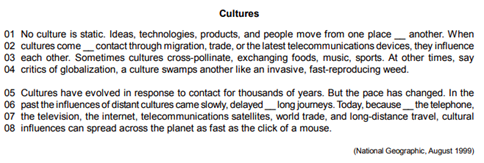Conteúdos
● Prepositions (preposições).
Objetivos
● Compreender a importância das prepositions na Língua Inglesa;
● Aprender sobre suas funções e como utilizá-las nas produções textuais e leituras.
Palavras-Chave:
Inglês. Prepositions. Preposições.
Proposta de Trabalho:
Para começar, trataremos do uso das preposições na Língua Inglesa. Na sequência, veremos as prepositions mais utilizadas, seus significados e funções. Para finalizar, veremos alguns exercícios sobre o assunto.
1ª Etapa: O que são as prepositions?
Na Língua Inglesa, as prepositions são palavras que podem ser utilizadas para expressar:
a) uma relação espacial entre dois ou mais entes;
b) uma relação temporal entre dois eventos; ou
c) relações abstratas diversas.
As prepositions são classificadas em:
a) simple prepositions – palavras que atuam sozinhas, assumindo a função de preposição; e
b) complex prepositions – pares ou grupos de palavras que, quando em conjunto, atuam como preposições.
2ª Etapa: Simple prepositions
Há muitas preposições na língua inglesa. As mais utilizadas foram selecionadas e incluídas no quadro abaixo, acompanhadas de sua correspondência semântica para o português, bem como de um exemplo de aplicação prática.
|
Simple preposition |
Correspondência semântica |
Exemplo |
|
|
|
|
|
aboard |
a bordo (de) |
Welcome aboard flight 201 to Lisbon. |
|
about |
sobre, acerca de |
What are you talking about? |
|
above |
acima (de) |
The book is on the shelf above you. |
|
across |
do/no/ para o outro lado (de) |
The school is across the street. |
|
after |
depois, após |
L comes after K in the alphabet. |
|
against |
contra |
Push the sofa against the wall. |
|
along |
ao longo de |
Let’s walk along the beach? |
|
amid |
em meio a, cercado de |
On the table, amid lots of books, there were two pens. |
|
among |
entre |
We got lost among all these people. |
|
around |
ao redor de, em volta de, em torno de |
They sat around the table. |
|
as |
como, tanto/tão… como |
She’s not as tall as her mother. |
|
at |
a, em |
We met at the station. |
|
before |
antes de, diante de |
They arrived just before the guests. |
|
behind |
atrás (de) |
He looked at me from behind the tree. |
|
below |
debaixo (de), abaixo(de) |
He could hear people talking below his window. |
|
beneath |
debaixo (de), abaixo(de) |
She hid the paper beneath a pile of books. |
|
beside |
ao lado de, perto de |
She sat down beside him. |
|
besides |
além de, além disso |
Do you play any other sports besides soccer? |
|
between |
entre |
Tonight’s game is between Brazil and China. |
|
beyond |
do outro lado de, além de |
Our house is just beyond the bridge. |
|
but |
exceto |
Everyone but Lisa knows. |
|
by |
por, perto de, ao lado de |
He passed the exam by studying every night. |
|
despite |
apesar de |
Despite all the problems we’ve had, I like this house. |
|
down |
para baixo |
Put that box down on the floor. |
|
during |
durante |
She fell asleep during the movie. |
|
except |
exceto, fora |
He works every day except Monday. |
|
for |
para, por |
Where is that thing for chopping vegetables? |
|
from |
de, desde |
He looked at me from behind the tree. |
|
in |
em |
They decided to meet in a park. |
|
inside |
dentro |
Let’s go back inside. |
|
into |
em, dentro de |
They went depp into the forest. |
|
like |
como |
She looks like her sister. |
|
near |
próximo de, perto |
The library is near the school. |
|
of |
de |
This is a good way of losing weight. |
|
off |
fora de, ausente de |
I was off school for a week. |
|
on |
sobre, em |
Don’t walk on the grass. |
|
onto |
sobre, em, para |
I stepped onto the platform. |
|
opposite |
no lado oposto de, de frente, em frente (de) |
Is there a bakery opposite your house? |
|
outside |
fora (de) |
She waited outside the room for one hour. |
|
over |
acima de, por cima de |
Suitable for children aged five and over. |
|
past |
depois (de), para lá (de), além de |
I live just past the park. |
|
round |
em volta (de), ao redor (de) |
We sat round the table. |
|
since |
desde |
She’s been waiting since April. |
|
than |
do que |
It cost less than I expected. |
|
through |
através de, por, durante, por meio de, até |
Just come through here, and I’ll show you where the problem is. |
|
to |
para |
Last week, they moved to Paris. |
|
towards |
em direção a, perto |
She stood up and walked towards him. |
|
under |
embaixo de, sob, menos que |
She pushed her bag under the table. |
|
underneath |
debaixo, embaixo de |
I found her shoes underneath the bed. |
|
unlike |
diferente de |
Unlike you, she’s not working today. |
|
until |
até (que) |
Many of these treatments were used until quite recently. |
|
up |
para cima, acima |
She ran up the stairs. |
|
upon |
no, na |
She gave him a hug upon his arrival. |
|
via |
via, por |
Reports are coming in via satellite. |
|
with |
com |
She lives with her brother. |
|
within |
dentro de, no prazo de |
The taxi arrived within five minutes. |
|
without |
sem |
You can start eating without me. |
3ª Etapa: Complex prepositions
Embora a maior parte das preposições em inglês corresponda a palavras sozinhas, alguns conjuntos de duas ou mais palavras também atuam, quando reunidas, como preposições.
As complex prepositions mais utilizadas estão no quadro abaixo, seguidas de sua correspondência semântica na língua portuguesa e também de um exemplo de uso.
|
Complex preposition |
Correspondência semântica |
Exemplo |
|
|
|
|
|
ahead of |
antes de |
I managed to finish the work a week ahead of the deadline. |
|
apart from |
para além de |
Can you tell me what is being planned apart from the party? |
|
as for |
quanto a |
As for me, I’d rather have a holiday in July, when it’s cold. |
|
as of |
a partir de |
As of January, we can go to Europe. |
|
because of |
devido a, por causa de |
I had to wear a coat because of the cold. |
|
but for |
exceto por |
The street was deserted but the occasional cab. |
|
by means of |
por meio de |
The teacher explained the exercise by means of an example. |
|
by virtue of |
em virtude de |
We won by virtue of our good work. |
|
due to |
devido a |
Schools are closed due to the pandemic. |
|
except for |
com exceção de |
Except for Paris, I know all the european capitals. |
|
for lack of |
por falta de |
The debate was closured for lack of time. |
|
in addition to |
além de |
In addition to its food, Italy is famous for its culture. |
|
in exchange for |
em troca de |
My friend gives me guitar classes in exchange for French classes. |
|
in favour of |
a favor de |
I voted in favour of the proposal because I think it’s for the best. |
|
in front of |
na frente de |
I’d never say that in front of the children. |
|
in line with |
em linha com, de acordo com |
The result is in line with forecasts. |
|
in place of |
no lugar de, em vez de |
In place of lemons, we can use some vinegar. |
|
in spite of |
apesar de |
I went for a walk in spite of the bad weather. |
|
instead of |
ao invés de |
Tonight we will eat pizza instead of soup. |
|
on top of |
além de |
On top of everything I did, I still have to work this next Saturday. |
|
out of |
fora de |
He’s now out of danger. |
|
prior to |
antes de |
I did a lot of thinking prior to solving the issue. |
|
up to |
até |
There’ll be up to 100 people there tonight. |
4ª Etapa: Questões
Seguem abaixo alguns exemplos de como o tema usualmente aparece em vestibulares. O gabarito está depois das questões.
1) (UNC – 2011 – vestibular de verão)

Which is the correct sequence of the miss-ing words in the text?
a) in – in – and – for – at
b) at – in – and – for – in
c) in – in – and – to – in
d) at – of – for – to – off
Disponível em: QConcursos
2) (IFRS – 2014)

Assinale a alternativa que preenche correta e respectivamente as lacunas das linhas 1, 2, e 6.
a) to – of – into – by
b) by – into – to – of
c) to – into – by – of
d) by – to – into – of
e) into – of – by – to
Disponível em: QConcursos
3) (UEA – 2012)
Instrução: Leia o texto para responder a questão.

A lacuna do texto pode ser corretamente preenchida por
a) at
b) to
c) in
d) from
e) over
Disponível em: QConcursos
4) (UNIFESP – 2018)
Why so few nurses are men
Ask health professionals in any country what the biggest problem in their health-care system is and one of the most common answers is the shortage of nurses. In ageing rich countries, demand for nursing care is becoming increasingly insatiable. Britain’s National Health Service, for example, has 40,000-odd nurse vacancies. Poor countries struggle with the emigration of nurses for greener pastures. One obvious solution seems neglected: recruit more men. Typically, just 5-10% of nurses registered in a given country are men. Why so few?
Views of nursing as a “woman’s job” have deep roots. Florence Nightingale, who established the principles of modern nursing in the 1860s, insisted that men’s “hard and horny” hands were “not fitted to touch, bathe and dress wounded limbs”. In Britain the Royal College of Nursing, the profession’s union, did not even admit men as members until 1960. Some nursing schools in America started admitting men only in 1982, after a Supreme Court ruling forced them to. Senior nurse titles such as “sister” (a ward manager) and “matron” (which in some countries is used for men as well) do not help matters. Unsurprisingly, some older people do not even know that men can be nurses too. Male nurses often encounter patients who assume they are doctors.
Another problem is that beliefs about what a nursing job entails are often outdated – in ways that may be particularly off-putting for men. In films, nurses are commonly portrayed as the helpers of heroic male doctors. In fact, nurses do most of their work independently and are the first responders to patients in crisis. To dispel myths, nurse-recruitment campaigns display nursing as a professional job with career progression, specialisms like anaesthetics, cardiology or emergency care, and use for skills related to technology, innovation and leadership. However, attracting men without playing to gender stereotypes can be tricky. “Are you man enough to be a nurse?”, the slogan of an American campaign, was involved in controversy.
Nursing is not a career many boys aspire to, or are encouraged to consider. Only two-fifths of British parents say they would be proud if their son became a nurse. Because of all this, men who go into nursing are usually already closely familiar with the job. Some are following in the career footsteps of their mothers. Others decide that the job would suit them after they see a male nurse care for a relative or they themselves get care from a male nurse when hospitalised. Although many gender stereotypes about jobs and caring have crumbled, nursing has, so far, remained unaffected.
(www.economist.com, 22.08.2018. Adaptado)
No trecho do terceiro parágrafo “To dispel myths, nurse-recruitment campaigns”, o termo sublinhado indica
a) equivalência.
b) adição.
c) causa.
d) contraste.
e) finalidade.
Disponível em: QConcurso
5) (UNESP – 2017)
It is essential to promote social inclusion by providing spaces for people of all socio-economic backgrounds to use and enjoy. Quality public spaces such as libraries and parks can supplement housing as study and recreational spaces for the urban poor.
There is a need to ensure that there is an equitable distribution of public spaces within cities. Through the provision of quality public spaces in cities can reduce the economic and social segregation that is prevalent in many developed and developing cities. By ensuring the distribution, coverage and quality of public spaces, it is possible to directly influence the dynamics of urban density, to combine uses and to promote the social mixture of cities’ inhabitants.
Rights and duties of all the public space stakeholders should be clearly defined. Public spaces are public assets as a public space is by definition a place where all citizens are legitimate to be and discrimination should be tackled there. Public space has the capacity to gather people and break down social barriers. Protecting the inclusiveness of public space is a key prerequisite for the right to the city and an important asset to foster tolerance, conviviality and dialogue.
Public spaces in slums are only used to enable people to move. There is a lack of public space both in quantity and quality, leading to high residential density, high crime rates, lack of public facilities such as toilets or water, difficulties to practice outdoor sports and other recreational activities among others.
(www.learning.uclg.org)
No trecho do terceiro parágrafo “as a public space is by definition”, o termo em destaque pode ser substituído, sem alteração de sentido, por
a) by.
b) however.
c) like.
d) yet.
e) because.
Disponível em: QConcursos
Gabarito
1) c) in – in – and – to – in
Nesta alternativa, o significado das palavras encaixa-se perfeitamente aos contextos apresentados.
2) c) to – into – by – of
Nesta alternativa, o significado das palavras encaixa-se perfeitamente aos contextos apresentados.
3) d) from
A palavra “from” se encaixa perfeitamente ao contexto apresentado no texto, tendo o significado próximo de “de”, ou “desde de”.
4) e) finalidade
No contexto apresentado, a palavra “to” indica finalidade (algo como “para”), sendo a correspondência semântica algo próximo de “Para dissipar mitos, a campanhas de recrutamento de enfermeiras…”.
5) e) because. No trecho apresentado, a palavra “as” explica por qual razão os espaços públicos são bens públicos, dizendo que isso se dá porque os espaços públicos são locais em que as pessoas podem estar e onde discriminação alguma deveria existir. Nesse contexto, a palavra que poderia substituir o “as” é “because” (porque).
Roteiro de Estudos elaborado pela Professora Daniela Leite Nunes




